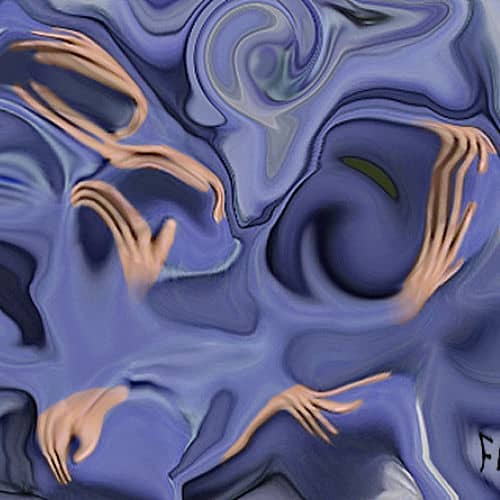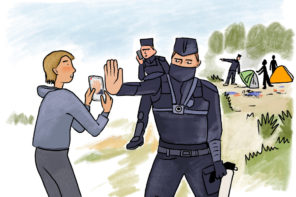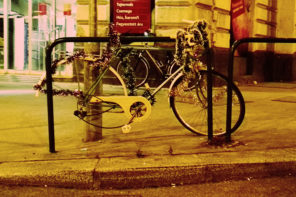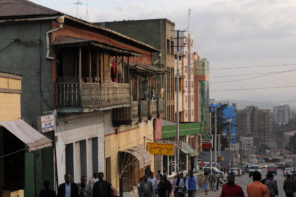On the fourth and fifth of June, the anthropology department at the London School of Economics and Political Science hosted a workshop exploring how accusations of envy and greed are mobilized in our contemporary world. All of the participants were united by a fascination with how moral emotions like envy and greed are instrumentalized in social life to both police the behavior of others and to justify various individual and collective projects. Yet far from wishing to dismiss the mobilization of these emotions in discourse as so much bad faith, participants also wished to show how social actors become genuinely invested in their own emotions, seeking to cultivate the right dispositions and avoid the wrong ones to the point where those emotions may indeed be deeply felt.
The goal was to catalyze new collaborations at the intersection of three bodies of anthropological literature: 1) ethics and morality 2) political economy and 3) the so-called “affective turn.” In doing so, participants sought to re-ground these three exciting trends in scholarship by contextualizing them in terms of each other and revitalizing connections amongst them that have been sundered in the midst of increasing specialization.
The result was a focus on a set of concerns around the relationship between ethical self-cultivation, the body, and the broader political and economic forces transforming our contemporary world that could only be addressed through long-term ethnographic research grounded in a broadly comparative framework.
We received a great response to the call for papers and eventually brought together 14 papers organized around 4 panels: “Accusation and the Interpersonal,” “Shame, Blame, and Accusation,” “Race, Ethnicity, and the State,” and “Greed Deservingness and Desire.” Individual papers explored everything from narratives of gluttony and perseverance amongst Filipino migrants (Resto Cruz), to witchcraft accusations in a refugee resettlement camp (Sophie Nakueira), to accusations of greed leveled at real estate speculators in an isolated Australian mining community (Kari Dahlgren).
Workshop participants also discussed the positive values that accusations of ‘ugly feelings’ like greed and envy disrupt: aspirations for mutuality, cooperation, dignity, and reciprocity. Participants further discussed how many of their interlocutors’ narratives were structured around the emergence of economic and political forces creating conditions of anxiety and instability. While these anxieties played out differently in each case, it became evident that such policing, blaming and shaming could generate new forms of ‘othering’—yet often tended to reinforce the already existing power inequalities embedded in race, class and gender divisions in society. Indeed, the emotions that seem most potent from an ethnographic perspective often seemed to be those locked in a reciprocal, mutually constitutive relationship with preexisting power structures.
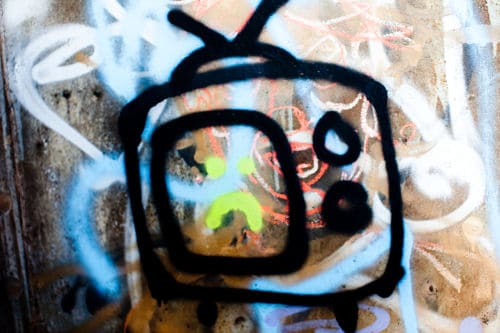
Photo by Thomas Hawk (flickr, CC BY-NC 2.0)
One particularly striking example of this was provided by Beverly Skeggs in her reflections on work that she did on British reality TV in the early 2000s. Here, a new genre of TV show associated with deregulation and a new generation of boundary-testing media executives proved adept at revivifying cultural fixations involving Britain’s classic ‘constitutive others’: women, people of color, and the working classes. Drawing on audience reactions in a series of group screenings that she organized as part of her research, Skeggs found that the most pointed moments of affective release were associated with instances of a particular species of schadenfreude. In these moments, audience members were invited to judge—and took pleasure in judging—reality TV stars in ways that they themselves were accustomed to being judged. Thus female audiences tended to emote more where the judgments were centered on women and minoritized audiences tended to emote more where judgments were centered on the minoritized. The evidence seemed to suggest that the shows created a stable emotional structure that both offered the working classes release from the affective weight of such judgments while upholding the validity of the judgments themselves. Too add insult to injury, the very enjoyment of such “trash TV” itself becomes a signifier of particular (supposedly) class, gender, and race-based inadequacies.
If there was one take-away from the workshop, it was this sadly common pattern in which some of the world’s poorest and most marginalized seem to take on much of the psychic burden of emotionally processing the increasingly rancorous forms of inequality that define out contemporary world.
Yet far from being given credit for doing such ‘affective labor,’ the emotions and passions so aroused merely become yet more proof that the world’s haves and have-nots are constituted by different forms of bio-moral substance. The cruel irony here is that the emotional burden of being stigmatized serves to provide further justification for that very stigmatization. The reification of this global common sense represents a disturbing trend in our contemporary world—one that we hope that anthropology can counteract through the development of a new, more critical analytic language.
Featured photo by Peter Erwig (flickr, CC BY-NC 2.0)

